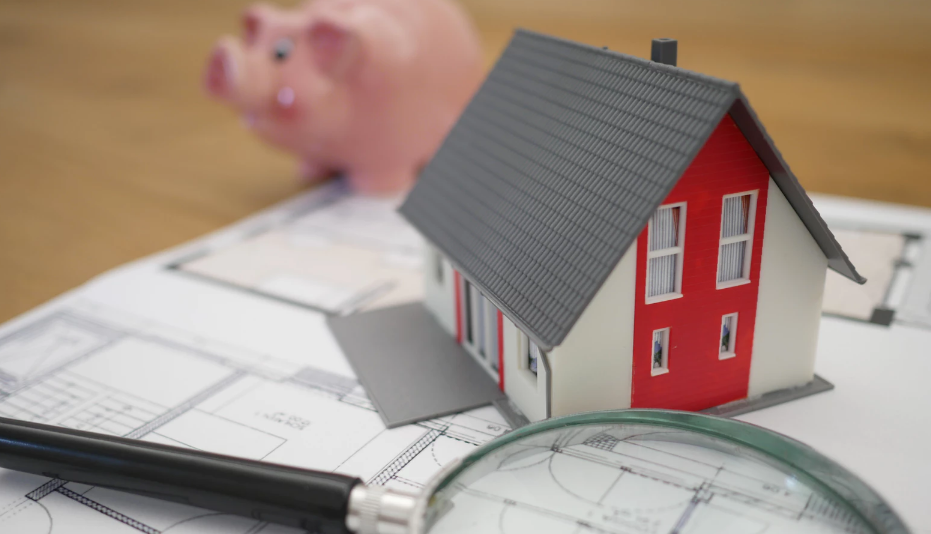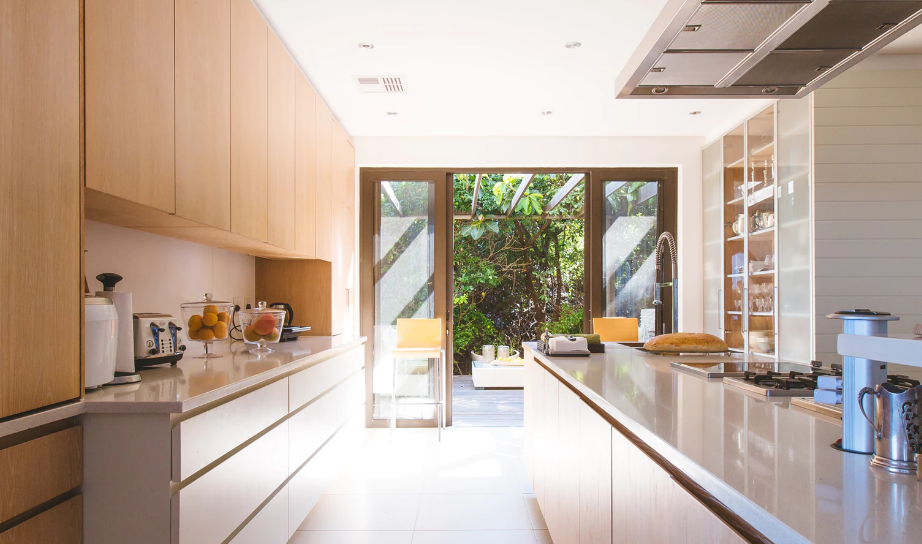Sometimes, you’ll feel the urge to move beyond financial business-as-usual and get your money working for you. Investing is one way to attempt to amplify the usefulness of money that might otherwise sit passively in a bank account.
“Sitting” money is a great thing, of course—and it’s there when you need it. But “working” money, now that can be even better. And if you’re looking for a way to get your money working for you, you may already be considering mobile home investing.

Mobile home investing can take on different forms—investors might buy to hold or buy to flip. (And some investors even buy entire mobile home parks as an investment). Either way, generally, the main idea is to somehow better the investor’s financial picture. And, there are two sides to the coin that is mobile home investing.
The two sides of mobile home investing
First, there’s the perspective of a mobile home investor, including why they’re looking to invest and what they’re looking for. Naturally, the goals and interests of each investor will vary—which makes the whole mobile home investment ballpark a dynamic or variable place.
Second, there’s the perspective of current mobile home owners looking to sell. And, just like investors are variable creatures, so are homeowners. Every owner has a story of their own (and their mobile home may, too). Some may sell for price, trying to get the highest purchase price available. Others may sell for speed, regarding price as less important than getting a buyer quickly.
Finding the perfect mobile home (or perfecting yours to sell)
Just what does the perfect mobile home look like? Well, let’s define the perfect mobile home (for a buyer or a seller) as the one that fulfills your expectations. If you’re a buyer, that means it’s well situated to help you meet your goals (financial goals, time frame goals, etc.).
For a seller, it means much the same. The perfect mobile home would be the one you can find a buyer for. And the one that they actually pay your asking price for.
Who are investment buyers and what do they do?
Investment buyers purchase mobile homes with a goal that’s bigger than personal use. Likely, they’re not planning to live in the home themselves. Instead, they’re using it as a method to make money.
Mobile home investors bring different motivations to the table. Some buyers could be looking to fund their retirement. Or, a buyer could be a relative youngster looking for an outside-the-box career path. Some buyers might be in the middle of their careers, looking for a way to invest earnings that they don’t need and aren’t using.
If you’re a homeowner, you may want to know how to attract an investment buyer. What might make them seriously consider adding your mobile home to their portfolio? And if you’re a potential buyer, looking to get your feet wet in mobile home investing, you’re wondering what you want to look for. That said, let’s take a look at things investment buyers may want.
1 – A “good” location
You know the oft-repeated real estate mantra—location, location, location. Well, keep it in mind for a mobile home in addition to other types of real estate. We’re noting it with quotes because there isn’t one type of location that’s going to be the magic one. It’s not as though you can take a picture of a successful location, then find visually similar places and know they’ll be okay. But what you do want to do is find a location match—a place where the type of mobile home is well-suited for success in its situation.
For instance, a luxury mobile home where future renters have to lay out $1,000’s per month might have a location mismatch in a rural town where most other housing is low-cost. Plus, a mobile home that’s going to need a lot of TLC may succeed best if it’s located where the buyer is able to find and hire willing contractors. (And where those contractors will be able to get to it moderately easily).
2 – Demand (or reason to believe there will be demand)
Demand is related to the location concept we were just talking about. Having a mobile home located where there’s a surplus of housing is not necessarily a good sign. Unless of course there’s a surplus of expensive housing, but a dearth of affordable housing. In that case, you could be on to something.
As a seller, you may be able to help make your home more appealing to investment buyers in this regard. Have important information ready at hand. Is there a new industrial complex about to open in the area, providing hundreds of jobs? That could be very useful for the investor to know. Is there a college nearby producing a never-ending stream of housing-hungry students? Again, it could be good to let the investor know about this.
3 – A financial picture that allows the investment buyer to recoup expenses (and hopefully exceed them)
Now, it’s really time to listen up. To you investors out there—our very biggest suggestion is that you do the math. Whether you do it literally or figuratively, do the math for the situation you’re talking about.

Naturally, a buyer will have expenses when they go to buy a mobile home. If they’re buying to flip, then obviously they’ll have the purchase price and the cost of any renovations they do. Additionally, if they’re buying to hold and rent out, they can have costs associated with taxes, utilities, and repairs.
Making money (or at least not losing it)
The big point is to make money. Ideally, you likely want a big difference between how much you put into your home and how much you get out of it. A big positive difference, that is.
Naturally, you’d think this means to put a little money into it, then rehab it and sell it for an astronomical amount, right? Well, that sounds good, and in some cases, it probably could work. But if you’re in this for the long haul, chances are you know that that kind of pie in the sky scenario won’t always happen.
Regardless of exactly what that numerical difference between income and expenses is, you generally do want it to be positive, with income exceeding expenses. In other words, you want to make back what you put into the home.
Arm yourself with knowledge and numbers
For the seller, recognize the buyer may want to know what their expenses and income might look like for the property. They’ll be wondering whether the amount the property might bring in the future can exceed any and all of their expenses.
You may be able to help make your property more attractive by sharing your average expenses. Being able to show an interested buyer what the current and past taxes look like is one part of this. Then, there’s also showing what you typically pay for water and sewer.
Plus, if you know what the income from the property could look like, that might also help. Do you happen to know that the next house over is comparable to yours and it’s being rented for $800 per month? Well, that information could be extremely useful. Check out Rentometer to help learn what rental prices around you are like.
4 – Reasonable lot rent
If the mobile home in question is in a mobile home park, then don’t forget to take the lot rent into account. As a seller, you should know what this amount is. Naturally, the buyer may take it into account if they’re planning to leave the mobile home in its current location.
Just know that lot rent is an expense that would cut into the investor’s profit margin. If lot rent is astronomically high, an investor could decide that purchasing doesn’t present a good deal for them. As we noted above, the investor will likely want the income stream the home is presenting to exceed the money they’re putting into it.
5 – More bedrooms
More people = more bedrooms. If the mobile home is in an area where renters are likely to be families as opposed to singles, then it’s reasonable to expect that more bedrooms could be a plus. (And even if your market is saturated with singles, an extra bedroom or two might still turn out to be a good thing).
6 – A certain age of home
Some investors will shy away from old mobile homes. Like many other objects, mobile homes age. And with age, of course, comes the possibility of wearing out and declining. If an investor has a target number of years they’d like their investment to be in good shape, then certain homes might not fit the bill.
Just as in human life, though, age is relative. How old is old? Well, that depends. An investor could steer clear of homes built before the 1976 HUD code.

Or they could choose a later date at which they cap it off. Just know that unlike certain other commodities like wine or cheese, age isn’t always a good thing.
7 – Visible issues
Wait a minute, you’re thinking, what kind of investor wants to see visible issues with a prospective investment? Sounds backward, doesn’t it? But a mobile home buyer likely wants to know what they’re up against. A problem they can see is one they can account for.
Clarity could take some of the risks out of the scenario. Let’s say an investor sees and knows any issues a home has. In that case, they can decide not to pursue the home if desired. Alternatively, they can make a reasonable offer and budget for necessary repairs.
8 – Inhabited (or recently inhabited)
Sometimes potential buyers may prefer to invest in a home that’s had people living in it recently. Consider this—if you’re living in a house, chances are it’s at least functional. Naturally, people want their homes to be in decent shape.
Conversely, if a home isn’t inhabited by humans, who knows what other species from Kingdom Animalia it might be inhabited by? And why did the previous residents leave anyway—was it because the home was failing? Then, once they did leave, did anyone care for the home? A home that’s been left behind by the dweller might have fallen into a state of disrepair that’ll be tough to recover from.
9 – Previous renovations legal and up to code
Picture yourself as a mobile home seller for a moment. (Maybe you don’t have to imagine it—maybe you are one already). You really want your mobile home to sell. And you’ve been pecking away at some improvements you think will increase your chances of landing an investment buyer.
Maybe you gave the home an open floor plan because you think that’s a more popular layout now. To do it, you had to tear down a wall. Or maybe you split one large bedroom into two in a bid to make the home more family-friendly. Perhaps you simply added a deck or a mobile home porch. Drawing on your own ingenuity, a little building experience, and some helpful internet DIY plans, you think you’ve worked wonders.
That is until an interested buyer asks if your renovations and additions are up to code. Code? What code?
Yes, if you’re going to renovate or build on to your property, there are certain do’s, don’ts, and permissions involved. Your local housing code should lay them out, and you can contact local authorities for more information. Don’t be that person who discovers that what they’ve invested blood, sweat, and tears in, would then have to be torn out by a conscientious buyer.
10 – A home that’s financeable (if they’re looking to finance)
Some investment buyers might come in with cash. And, if you’re the seller you might be happy to see that happen. However, some sellers may be looking for homes that a lender will help them purchase. Not all mobile homes are good candidates for a mortgage. So, if your buyer comes in and is willing to purchase if they can get a loan, obviously, you’ll want a home that the bank will look kindly on. If you’ve taken steps to make your home real property, be sure to let the buyer know.

Know before you go
When it comes to investing in mobile homes, we have three parting admonitions for you.
- Know your market
- Know your mobile home
- And know your math
None of that means you’re escaping risk (or that you have to run from risk). Risk can be inherent in investments, and it’s not necessarily a bad thing. But we say that risk backed up by knowledge trumps risk backed up by nothing.
Knowledge
Dig deeper into the world of mobile homes. Will you be renting yours out? Take a look at How To Create A Vibrant & Welcoming Mobile Home Rental. And if you’re moving after you buy, check out The Property Owner’s Guide To Preparing Your Land For A Mobile Home.


